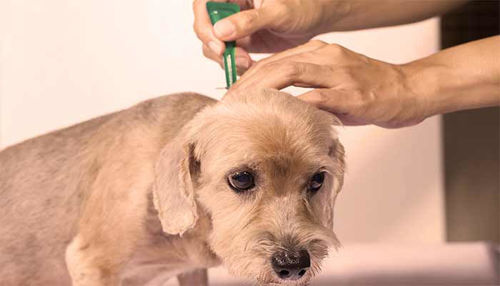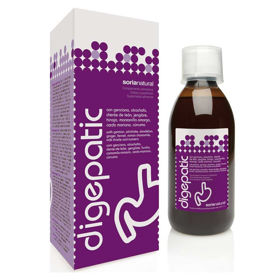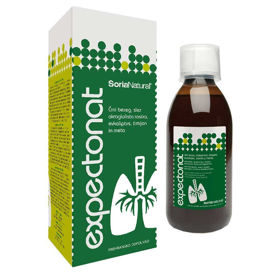
TIP NO. 1: Dental care
Dental problems are a very common but at the same time dangerous problem in dogs. Mainly because tooth decay not only creates problems with the teeth, but can cause infections all over the body, especially on the heart, kidneys, and can also affect the liver, bones and joints.
Most dogs do not have perfect teeth and fresh breath like humans, but their teeth and gums must be clean. You can also buy a small toothbrush. It is best to use a brush at a 45 degree angle to clean the area under my gums.
Brush your pet’s teeth at least once a week, but it is recommended that you do not use toothpaste as it can be harmful to dogs. if your dog is accumulating stones, it is recommended that you visit a veterinarian.
Did you know that a puppy's bad breath can be a sign of problems with his teeth or gums?
The reason for this can be particles of food and saliva on the teeth, which can lead to infection. This infection needs to be eliminated, otherwise tooth decay occurs which affects the health of your puppy. Therefore, we recommend that you regularly inspect and brush your pet’s teeth.
TIP NO. 2: Dehydration
Does your puppy drink enough water? Dehydration or Lack of water in the body can cause serious complications. Water is also essential for dogs, who depend on proper daily fluid intake to maintain proper health. Water makes up 80 percent of your dog's body weight and dissolves natural and unnatural substances and serves as the basis of all his biological processes, including circulation, metabolism and the removal of unnecessary substances from the body.
Dehydration occurs when fluid levels drop to less than normal. This is due to either reduced water intake or increased fluid loss. Fluid loss may be due to overheating in hot weather or in case of vomiting or diarrhea, especially in pups.
First, the key question is how to recognize the signs of dehydration in your dog at all. Observe if he may have a dry mouth, rarely excretes urine, and his skin loses elasticity. These can be the first three signs. Signs of dehydration include depression and loss of appetite.
How to avoid this?
The puppy should have a container of water available at all times, and of course in the meantime monitor whether he walks often enough to drink. if e.g. you have an older dog who suffers from arthritis and finds it harder to get a container of water, you need to help him keep from dehydrating.
If dehydration happens by accident, you can also help your dog with water that contains enough electrolytes to restore balance in the body.
TIP NO. 3: Weight control
Unfortunately, being overweight can also affect puppies, which is mainly affected if they eat a lot of fatty foods that are otherwise intended for human consumption, and also if they eat too much pet food and do not get enough exercise.
One way to prolong the life of your pet is to try to always maintain its healthy weight. Keep track of how much food you give him daily and balance it. It is also advisable to offer the dog vegetables from time to time (eg broccoli - a source of fiber and vitamin C, carrots - a source of various vitamins, zucchini - help with diarrhea, etc.), but you can also buy organic pet food.
If your puppy is overweight and not moving enough, arthritis, liver disease, and coronary heart disease often occur. So take care of a balanced, quality diet for your pet and thus additionally make sure that your puppy will live a healthy life for as many years as possible.
TIP NO. 4: Daily movement and relaxation
Not only people, but also dogs need exercise or. movement. It would be best if your puppy moves intensely for at least 1 hour a day as this affects his health, weight and helps maintain a healthy heart. It is not necessary that the exercise is routine, the same every day, but it is important that the puppy runs around and explores outside, in addition to regular walks of course.
It is also great if your pets socialize with other puppies during this "training hour", as they enjoy it and thus contribute to their mental health and socialization.
Include regular exercise for puppies in your schedule as your pet will be truly grateful to you. In any case, do not forget to adapt the difficulty to the breed, age and health condition of the puppy.
After training, give your dog time to rest, as he has spent a lot of energy socializing, so he needs some time to rest. Allow your dog to sleep for at least an hour during the day and do not force him into activities if e.g. not interested.
TIP NO. 5: What about when the puppy gets sick?
When we have a dog, we want him to stay healthy, but if he gets sick, we want to help him as soon as possible in the best possible way. Natural treatments are becoming more and more popular, as this avoids the side effects that some medications have.
Thus, many animal owners and veterinarians have already recognized the revolutionary effects of industrial cannabis. The products are completely safe and do not cause any negative effects. Research over the last 10 years has repeatedly demonstrated a wide range of positive effects on the health of domestic animals.
studies have shown that animals have their own endocannabinoid system, which is superior to the immune system. l (anabinoids act directly on the nervous, immune, cardiovascular, respiratory, skin and digestive systems.
l < hemp active ingredients help in animal health in several different areas: inflammation, anxiety and depression, arthritis, nervousness and restlessness, hyperactivity, diabetes, diarrhea, bad breath, allergies, hair loss, appetite control, digestive problems, continuous barking, epilepsy and on many others. They also protect against viruses, bacteria and fungi.









 Facebook
Facebook
 Instagram
Instagram
 info@moja-lekarna.com
info@moja-lekarna.com

